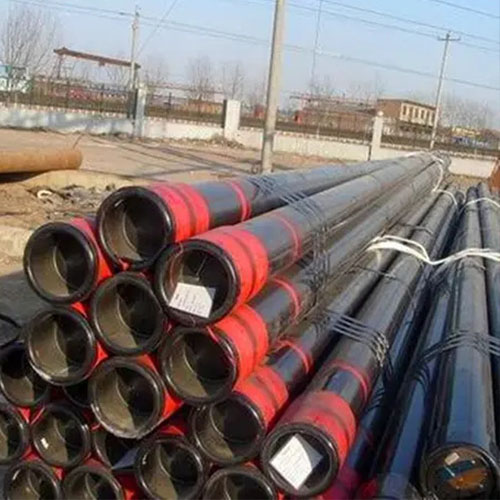Table of Contents
Differences Between AISI SS 201, 202, 304, 304L, 316, 316L, 430, 310, 310S, 316Ti, 904L, 904, 2205, 2507, 317 Stainless Steel
Stainless steel is a versatile and widely used material in various industries due to its corrosion resistance, durability, and aesthetic appeal. Within the realm of stainless steel, there are different grades that offer varying properties to meet specific needs. In this article, we will delve into the differences between several common grades of stainless steel, including AISI SS 201, 202, 304, 304L, 316, 316L, 430, 310, 310S, 316Ti, 904L, 904, 2205, 2507, and 317.
Let’s start by looking at AISI SS 201 and 202. These two grades are part of the austenitic stainless steel family and are known for their high strength and excellent formability. AISI SS 201 is a cost-effective option with good corrosion resistance, while AISI SS 202 offers better toughness and higher temperature resistance.
Moving on to AISI SS 304 and 304L, these grades are among the most commonly used stainless steels. AISI SS 304 is a versatile grade with good welding properties and corrosion resistance, making it suitable for a wide range of applications. AISI SS 304L is a low-carbon version of 304, which helps prevent sensitization during welding.
Next, we have AISI SS 316 and 316L, which are popular choices for applications requiring enhanced corrosion resistance, particularly in acidic environments. AISI SS 316 contains Molybdenum, which improves its corrosion resistance compared to 304. AISI SS 316L is the low-carbon version of 316, offering improved weldability.
AISI SS 430 is a ferritic stainless steel known for its good corrosion resistance in mildly corrosive environments. It is less expensive than austenitic grades but offers lower toughness and formability.

Moving on to AISI SS 310 and 310S, these grades are heat-resistant stainless steels designed for high-temperature applications. They offer excellent oxidation resistance at elevated temperatures, making them suitable for furnace parts and other heat treatment equipment.
AISI SS 316Ti is a Titanium-stabilized version of 316, offering improved resistance to sensitization and intergranular corrosion. This grade is commonly used in environments where exposure to corrosive Chemicals is a concern.
AISI SS 904L is a high-alloy austenitic stainless steel with excellent corrosion resistance in a wide range of environments, including sulfuric acid and chloride solutions. It is commonly used in chemical processing and pharmaceutical industries.
AISI SS 904 and duplex grades like 2205 and 2507 offer a combination of high strength and corrosion resistance, making them suitable for demanding applications in marine environments and chemical processing plants.
Lastly, AISI SS 317 is a high-alloy austenitic stainless steel with increased chromium, Nickel, and molybdenum content for improved corrosion resistance in harsh environments.
In conclusion, each grade of stainless steel offers unique properties that cater to specific application requirements. Understanding the differences between these grades is crucial in selecting the right material for your project.
Pros and Cons of Using 8k Stainless Steel for Pipe Applications
Stainless steel is a versatile material that finds applications in various industries due to its durability, corrosion resistance, and aesthetic appeal. Among the different types of stainless steel available in the market, 8k stainless steel is gaining popularity for pipe applications. In this article, we will explore the pros and cons of using AISI Ss 201, 202, 304, 304L, 316, 316L, 430, 310, 310S, 316ti, 904L, 904, 2205, 2507, and 317 8k stainless steel for pipes, whether they are square, round, seamless, welded, galvanized, or titanium-coated.
One of the primary advantages of using 8k stainless steel for pipes is its excellent corrosion resistance. Stainless steel, in general, is known for its resistance to corrosion, rust, and staining, making it ideal for applications where the pipes are exposed to harsh environments or corrosive substances. The 8k finish, also known as mirror finish, enhances the corrosion resistance of the stainless steel, making it even more durable and long-lasting.
Additionally, 8k Stainless Steel Pipes have a smooth, reflective surface that is not only visually appealing but also easy to clean. This makes maintenance hassle-free and ensures a hygienic Environment, especially in industries like food processing, pharmaceuticals, and chemical processing where cleanliness is crucial.
Moreover, 8k stainless steel pipes exhibit high strength and durability, making them suitable for high-pressure and high-temperature applications. The material can withstand extreme conditions without compromising its structural integrity, offering reliability and longevity in various industrial settings.
On the flip side, one of the drawbacks of using 8k stainless steel pipes is their higher cost compared to other materials like Carbon Steel or galvanized steel. The premium quality and enhanced properties of 8k stainless steel come at a price, which might be a limiting factor for some budget-conscious projects.
Another consideration is that stainless steel, including 8k stainless steel, can be susceptible to scratching and denting, which may affect the aesthetics of the pipes over time. Proper handling and maintenance are essential to preserve the pristine appearance of 8k stainless steel pipes and prevent any damage that could compromise their performance.
In conclusion, the decision to use AISI Ss 201, 202, 304, 304L, 316, 316L, 430, 310, 310S, 316ti, 904L, 904, 2205, 2507, or 317 8k stainless steel pipes for your applications depends on various factors such as corrosion resistance, durability, aesthetics, and budget constraints. While 8k stainless steel offers numerous benefits like corrosion resistance, durability, and a sleek appearance, it is essential to weigh these advantages against the higher cost and maintenance requirements associated with this material. Ultimately, choosing the right type of stainless steel for your pipe applications requires careful consideration of your specific needs and priorities.
